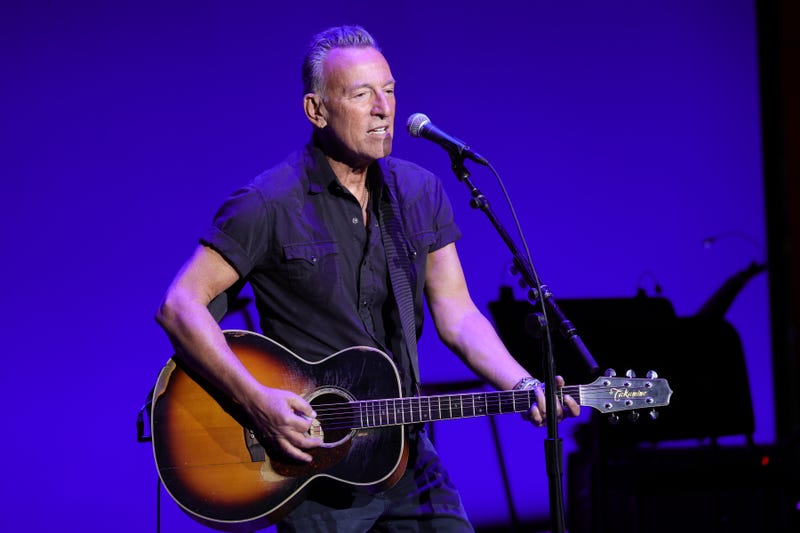
Buffalo, N.Y. (WBEN) - Bruce Springsteen and the E Street Band will be making their return to Downtown Buffalo on Thursday, March 23, 2023 to KeyBank Center. It will be the first time in seven years in which Springsteen took his tour to the "City of Good Neighbors".
Tickets for Springsteen's stop in Buffalo officially go on sale this Wednesday from from 10 a.m. ET to 2 p.m. ET.

The demand for the ever popular rock artist will likely be extremely high, which is why Ticketmaster required interested parties in registering through its Verified Platform before July 17. This is an attempt to prevent bots from buying up tickets beforehand, and to give more people a chance to get tickets with the high demand.
If the show does not sell out in the four-hour window, general on-sale tickets will be available at 3 p.m. ET on Wednesday.
However, it appears some fans are already experiencing some sticker shock when attempting to purchase tickets for Springsteen's shows elsewhere in the country. According to one report, fans saw the price of some floor seats for a Springsteen concert jump over $4,000 as a result of Ticketmaster's dynamic pricing system. The same report says the base price for shows when tickets went on sale ranged from $60 to $399.
"People haven't seen live music in a couple years. We just started getting back to it, really, in the last few months," said Nick Giammusso, President and CEO of VIPTIX.com. "Bruce Springsteen probably hasn't toured, so he's probably lost a lot of money, and as far as a performer goes, I'm sure he wants to reap as much as he can with what the market will bear. That's really what dynamic pricing is all about."
The dynamic pricing system is a way for companies to sell tickets to shows that adjusts the price of tickets in real time depending on levels of demand.
"In the old days, you used to have a lot of ticket companies purchase tickets, and then re-sell them in the market, which kind of - believe it or not - kept prices down. What you're seeing now is dynamic pricing at the box office, where they'll start super high and see what the market bears. If the tickets don't sell, then they can always lower the price, where that supply will meet the demand for the tickets," Giammusso explained. "It's a win-win for the artist, but it's a lose-lose for the average fan."
"It's going to be interesting, because people who have been going to see Springsteen have been going for 30 years. They're older, and they're used to the price being the price, being the price, especially if you get it directly from Ticketmaster," added Rob Lucas from Star 102.5. "Now, when you go to Ticketmaster with dynamic pricing, who knows what the price is. Watched Twitter between 10 a.m. and 10:30 a.m. on Wednesday. It should be very colorful."
As for the pre-registration process, Giammusso says it's a process that tries to gauge how many fans are going to try and actually register for the chance to buy tickets during that four-hour period before becoming available to the general public. However, this process is not necessarily helpful to the public.
"Gone are the days where the artists would set prices and, hopefully, sell tickets by doing a lot of marketing. It's just a whole different world now," Giammusso said.
With the giant popularity of acts like Springsteen and others, especially coming out of the COVID-19 pandemic, is the dynamic pricing system here to stay? Giammusso believes it is.
"It's a great way for the artists to maximize their sales and get the most out of the public for a show," he said. "It's completely opposite of the way Garth Brooks thinks, because he set a certain price ($98.95). It's a completely different thinking, and a different approach, in terms of selling tickets than what Bruce Springsteen is doing."
"Setting a price ahead of time is probably best for the public. You don't want to sit next to somebody; if you got in early and purchased tickets early, you're almost being [disincentivized] in purchasing your tickets early when someone could be sitting next to you that purchased the tickets just a few days before the concert, and you paid $500 a ticket and the person next to you could have paid $90. So I think it's an opposite way of thinking. You would think that you would be receiving some kind of discount by buying early, but that's not the case. That said, I still think it's a business, and that's why I think dynamic pricing is kind of here to stay."
As for the potential of Springsteen tickets selling out fast come Wednesday, Giammusso doesn't see that a quick sell out is very likely. The goal for acts nowadays is not to sell out fast, but to maximize the most revenue.
"Back when I was running the ticket office at the [Memorial Auditorium] in the early '90s, I think we sold out five shows for Garth Brooks in just a couple hours. You just don't see that anymore, because they're trying to maximize revenue," Giammusso said. "There's all kinds of games that Ticketmaster plays - they will hide inventory, and then show it again later, making it look like the seats are sold. There's a lot of games that are being played in the ticket industry these days, and it doesn't favor the fan. It's all weighed towards the artist.
"Buying tickets at the box office these days is difficult. It's not an easy process. You don't really know what the true market value is. Using a company like VIPTIX - my company - or any of the other ticket companies out there, it gives you a true indication of what market value is."
More from our conversation with Giammusso is available in the player below:

